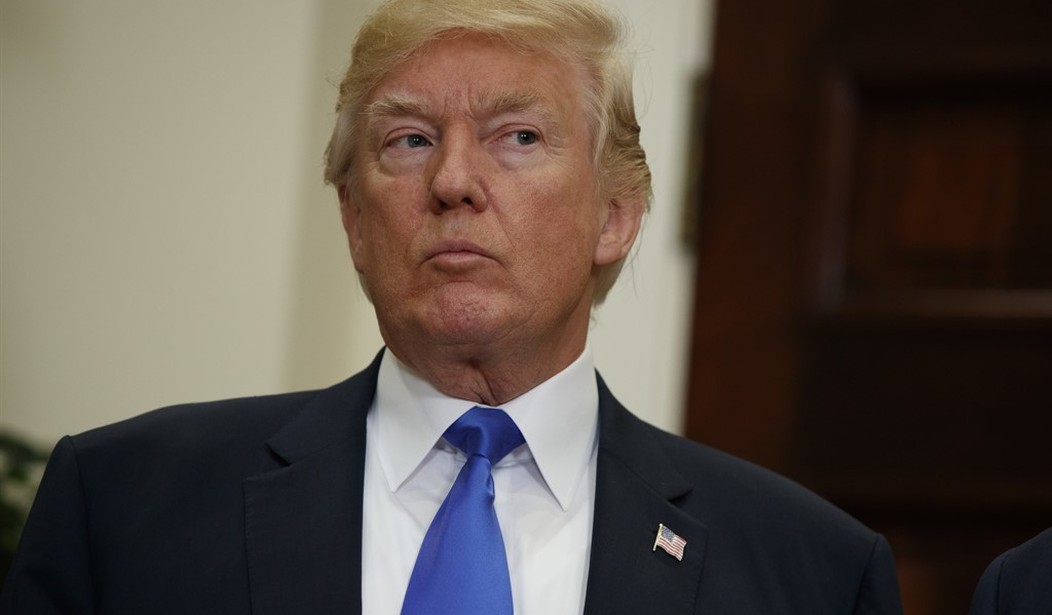This may be the most pro-Trump Russiagate story ever to appear in a major paper. Turns out a low-level Trump foreign policy advisor named George Papadopoulos tried to set up meetings between the campaign and Russian officials starting last March, before Trump had even clinched the nomination. Annnnnnd … some of the campaign’s major players, including Paul Manafort, just weren’t interested. Not only weren’t they interested, they were mindful of proper protocol: At least one advisor noted that meetings with a foreign state would raise Logan Act questions while another mentioned that U.S. allies should be notified before any Russia meetings happened.
WaPo does its best to shoehorn this news into the collusion narrative, noting that this proves the Russian government was eager early on to make contact with Team Trump, but the resulting disinterest within the campaign is so helpful to the president politically that you end up suspecting this was leaked to WaPo by the White House itself. Or by sources friendly to Trump.
Papadopoulos, a campaign volunteer with scant foreign policy experience, persisted. Between March and September, the self-described energy consultant sent at least a half-dozen requests for Trump, as he turned from primary candidate to party nominee, or for members of his team to meet with Russian officials. Among those to express concern about the effort was then-campaign chairman Paul Manafort, who rejected in May 2016 a proposal from Papadopoulos for Trump to do so…
On March 24, [Sam] Clovis, the campaign co-chairman who also served on the foreign policy team, reacted to one proposed Russia meeting by writing, “We thought we probably should not go forward with any meeting with the Russians until we have had occasion to sit with our NATO allies.”
In the same email chain, [Charles] Kubic, the retired admiral, reminded others about legal restrictions on meetings with certain Russian officials, adding, “Just want to make sure that no one on the team outruns their headlights and embarrasses the campaign.”
On May 4, the day after Trump won the Indiana primary and all but clinched the nomination, Papadopoulos circulated a message from someone at the Russian International Affairs Council that the Russian foreign ministry was interested in hosting the new presumptive nominee in Moscow:
Clovis responded to the Timofeev invitation by noting: “There are legal issues we need to mitigate, meeting with foreign officials as a private citizen.”…
Manafort reacted coolly, forwarding the email to his associate Rick Gates, with a note: “We need someone to communicate that DT is not doing these trips.”
If you’re desperate to salvage a collusion storyline out of that, you could argue that Manafort simply recognized that a Trump visit to Russia would have been piss-poor optics in the middle of a campaign, especially given Trump’s conspicuous neutrality towards Putin when asked about him in the past. The Russian foreign ministry obviously saw a huge propaganda coup in the making if it could convince Trump to accept the invite and do a grip-and-grin photo op with Putin in Moscow. Manafort knew how that would play back in the U.S. and wisely said, uh, nope. Either way, though, there’s nothing in the WaPo story to suggest that Manafort, Clovis, or anyone else was working an independent channel to the Kremlin and was uninterested in Papadopoulos’s alternative channel for that reason. Unless the emails were very selectively leaked by a pro-Trump source to create a false impression of disinterest, this is a solid boost to Trump’s claim that he never colluded.
One obvious complicating factor, though. Donald Jr, Manafort, and Jared Kushner did meet with someone whom Don Jr thought was acting on behalf of the Russian government when they sat down with lawyer Natalia Veselnitskaya last June — after most of the key Papadopoulos emails had been sent. The emails aren’t conclusive proof that no one in the campaign was interested in chatting with Russian officials because, er, they did in fact chat with Russian officials, or someone whom they thought was a Russian official. This story would have made a big impression if that meeting was still a secret, as it would point firmly towards the idea that Team Trump just wasn’t game for collusion. As it is, it’s a piece of the puzzle. If they weren’t interested in talking to Russia in May, why were they interested in June? Were they still interested in July, August, September, and October?







Join the conversation as a VIP Member